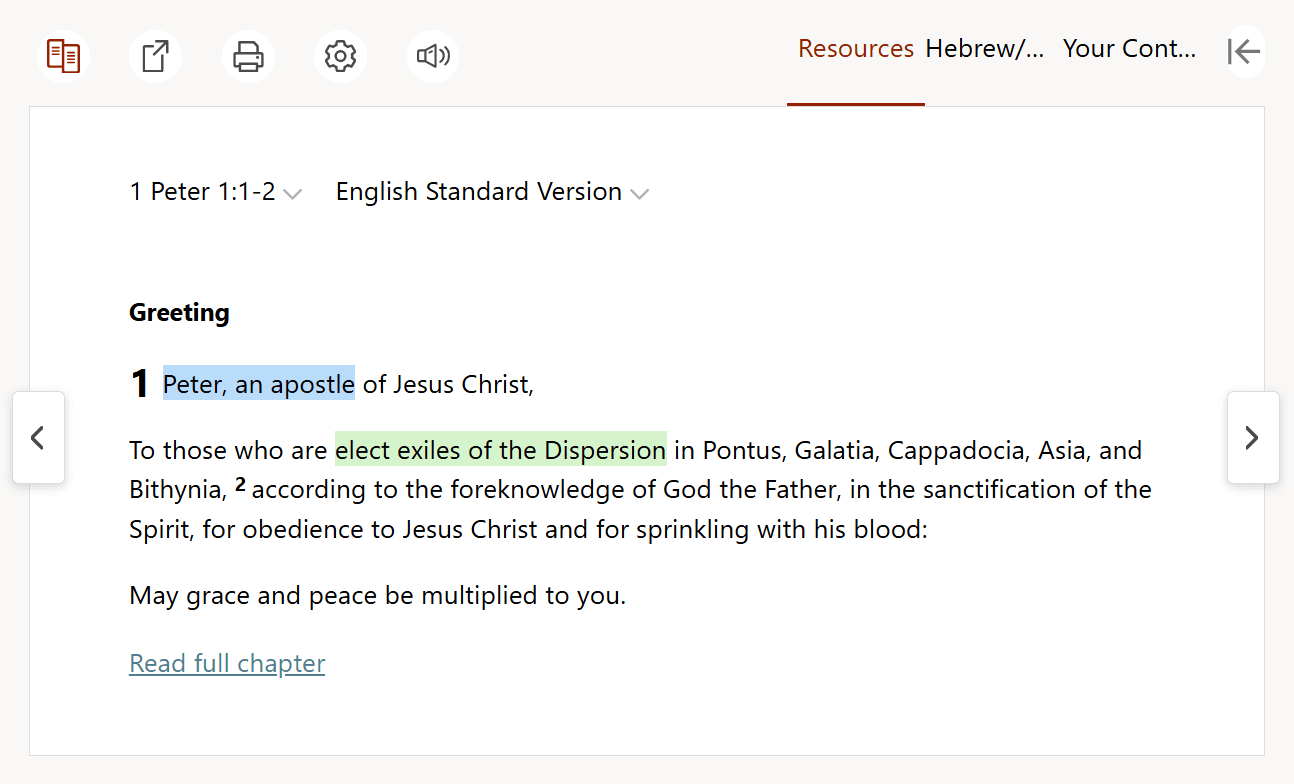 img:biblegateway.com
img:biblegateway.comPeter, an apostle...
Peter is an apostle to the apostles.
“Peter, James, and John” were given a unique responsibility to relate certain key moments in the life and ministry of Jesus Christ that only they witnessed. So Matthew, Mark, Luke, Timothy, and the rest had to learn it from Peter, James, and John.
An example of this is the Transfiguration, recounted in all four Gospels. Matthew didn’t see Jesus transfigured, Peter, James and John did. But there it is in Matthew 17, “Jesus took with him Peter, James, and John… up a high mountain by themselves.”
Matthew heard about it later.
There were twelve apostles. But there were three apostles to the apostles.
Peter is as close an apostle of Jesus Christ as there ever was. He is credentialed. He saw things even Paul needed to be told about.
His witness, his testimony, and his pastoral counsel is among the top of the list as the most important testimonies and counsel in the history of the world. Think about it, when you pick up 1 Peter to read it, you are holding a document that was poured out of the heart of a man who knew Jesus.
His witness and testimony and pastoral counsel is addressed to Christ’s Church on earth. All of them, ever.
Of course each of the Biblical authors was chosen by God for the very specific task of writing a sacred document. Some of them knew they were writing God’s Holy Word. It couldn’t have possibly been any clearer to Moses, for instance, who routinely wrote, “The LORD spoke to Moses and said,...”
Moses was chosen to do the writing, God did the speaking.
And that’s exactly how it worked, even among the authors who likely didn’t know they were writing a sacred document. So, for instance, did the author of the lengthy list of kings in Joshua 12 know that his list was being divinely inspired by the Holy Spirit to become 16 verses in the Holy Bible? I kind of doubt it. Yet there they are.
Peter might have had a better inkling.
Peter was commissioned by Jesus Christ to be His Apostle. So when Peter sits down to write a letter to Christians, and when he begins that letter with his Divinely bestowed credential as Apostle, it figures that Peter could have easily been aware that what he was writing was Holy.
Not that it matters. It is Holy, it was written by Peter, an Apostle of Jesus Christ, and what we are about to examine is how he identifies the recipients of his Holy Word.
He calls the Church, “elect exiles of the Dispersion”.
Elect exiles of the Dispersion.
Let’s examine that vocabulary.
elect
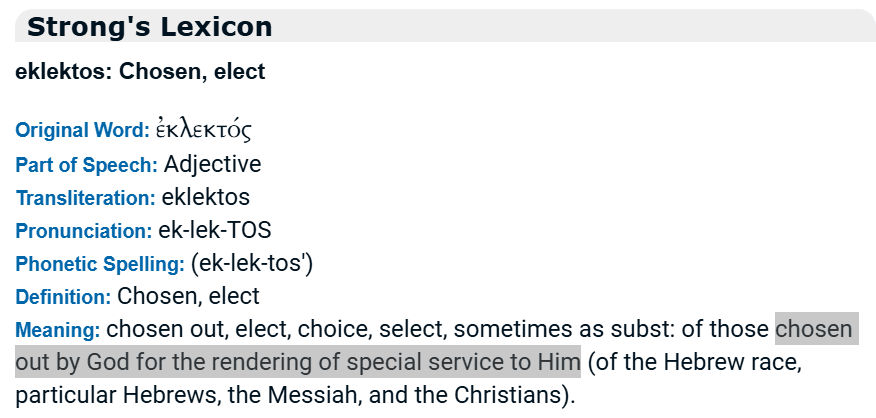

Peter says that the people living in the scattered regions of Asia Minor, (he mentions Pontus, Galatia, Cappadocia, Asia, and Bithynia specifically) are “eklektos”. They are chosen by God.
Peter’s audience is defined as God’s “deeply personal choice” of special servants who have been set apart for a Holy purpose. They are God’s eklektos.
An argument could be made to capitalize the word Elect in our reading of the text. So, “Peter, an apostle of Jesus Christ, to The Elect(plural)...” Eklektos is an adjective that also functions as a substantive noun. They are elect, and they are the elect.
Peter would have heard Jesus use this word in Matthew 24:22 when Jesus was speaking about the period of time between his ascension and second coming. He said that if the number of those days would not be mercifully cut short, nobody would be able to be saved. But “for the sake of The Elect,” God will indeed cut those days short. In other words, the eklektos are those who are saved.
Being chosen by God for salvation is part of what it means to be eklektos. It also means that the one who did the electing did so based on His personal intentions or preferences.
God prefers His Church. God intentionally selects each one of us for our salvation in Jesus.
This dynamic of love from God has always been at the core of how He addresses us.
In Exodus 19:5, God speaks to His people as His “segullah”, a Hebrew word which is variously translated, “treasured possession” (ESV) and “peculiar treasure” (KJV). It is a delightful word which marks a person or thing as the preferred choice from many options. If our word, “best friend” actually meant what it says, that might be a little bit like what segullah means.
Segullah is the one thing you rescue from your burning home. You rush in and don’t even think about what you’re looking for because it’s automatically the nearest and dearest thing to your heart. It’s your segullah.
The eklektos is chosen for a specific reason: these are God’s segullah.
Let me be more clear: The Church is God’s treasured possession, chosen as his prize from among all other things in His creation. It’s actually quite jarring to think about, in a most delightful way!
I’m sure you know yourself well enough - you don’t quite deserve to be elect like this. Or am I speaking about myself? Yes to both.
And yet here we are.
The Eklektos is The Church. You are the Church. This letter is to you.
True, at the exact time of Peter’s writing, that Church primarily existed in Asia Minor.
Today The Church is throughout the world. Insofar as we understand all Scripture to be the divinely inspired and inerrant Word of God, we can rely on the notion that it will perfectly guide, inspire, reprove, and save all people, nations, and tongues.
What an election!
Exiles
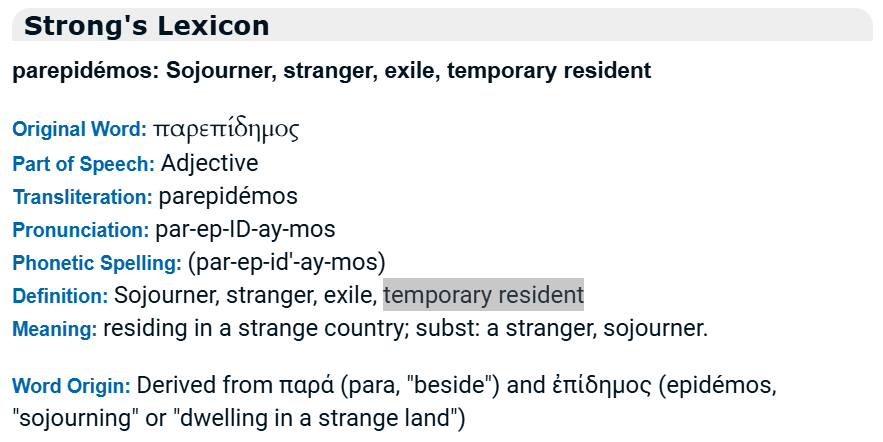

An exile is, by definition, out of place. Therefore exiles are an entire group of displaced people.
Like “eklektos”, “parepidemos” is an adjective used as a collective, substantive noun. (A good example of adjectives functioning as substantives is the movie title, “The Good, The Bad, and The Ugly”. These are three adjectives, but they are functioning as nouns.)
“Exiles” both describes and defines the redeemed of God.
So Christ’s Church on earth are out-of-towners. We are “in” from somewhere else.
Like a Connecticut Yankee in King Arthur's Court, we are fish out of water, we are strangers in a strange land, we are exiles, we properly belong somewhere else.
Our “somewhere else” is our place in the presence of God. We sometimes call it our “heavenly home”, but it’s probably most accurate to think of it as the state of being face-to-face with God.
That’s “home”. God’s most Holy presence - we included.
OK, fine, call it Heaven.
This… life in Pontus, or Cappadocia, or Northeast Georgia, or the 21st Century… this is “away”.
Exiles are away… away from home.
The Church on earth are exiles (parepidemos) from the face of God, and chosen (eklektos) to populate the cities and suburbs of the world.
That sense of longing for home is half of what it means to be eklektos.
Because Exiles are not merely away. They are also necessarily in a “personal relationship with the people” among whom they are out-of-towners.
Exiles, by definition, live with and among the locals. They mingle.
Exiles interact, support, advocate, defend, love, pray for, and generally ally themselves with those who are not exiles.
Exiles are “resident aliens”.
This is precisely what is reflected by the prophet Jeremiah in 29:7, “seek the welfare of the city where I have sent you into exile, and pray to the Lord on its behalf, for in its welfare you will find your welfare.”
You aren’t properly an “exile” in the biblical sense until you’ve gotten yourself connected with at least a few people who have yet to be baptized, or who have forgotten what a miraculous grace it is to have been baptized. Exiles befriend such people.
We could also say a lot about how God often describes his exiles as a diverse population itself. Throughout both Testaments there is an intentional acknowledgement that the chosen people of God are not defined by ethnicity or sex or class or age but by faith in the Savior of the world: Jesus.
Isaiah 42:6 asserts that God calls people into covenant relationship with him - a relationship that is open to the Gentiles as well as Israel. This is one example among hundreds.
Both aspects of the word Exile - “away” and “among” - are the reason Peter chooses this word to describe Christ’s Church. Though Christians are “not of this world”, they are fully invested in the care and redemption of this world. It’s their calling and their identity.
Jesus, in Matthew 28:19 when he defines our purpose and location as exiles: “go and make disciples of all nations, baptizing them… and teaching them…”
Peter reminds us that the Eklektos are Parepidemos. The elect are exiles.
Dispersion
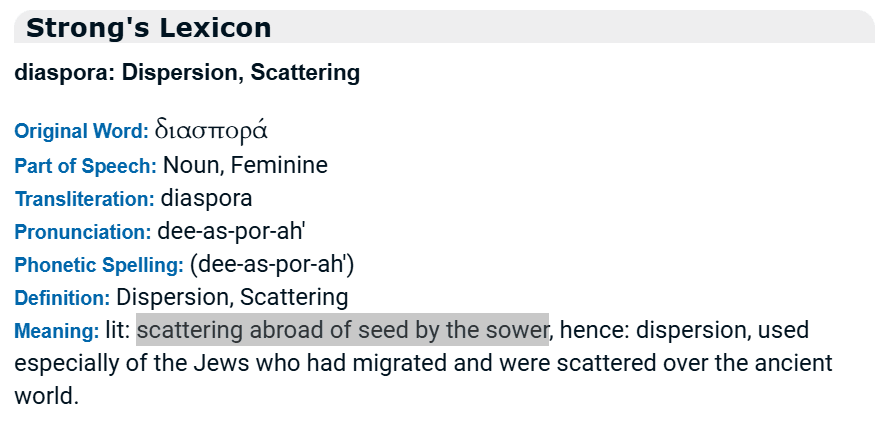
The word is diaspora. The definition is “a dispersion”, which is what ESV uses for its translation.
So what is a diaspora?
The word first appears in the Greek New Testament in the voice of the Pharisees who, in John 7:35, are confused when Jesus says that they will only see him for a little while, then he will return to the one who sent him. Bewildered, they think perhaps Jesus will be traveling to the “Diaspora” among the Greeks.
Their errant understanding of what Jesus meant reveals Jerusalem, as the geographical center of Judaism in the first century, regarded all Jews as a singular people scattered away from Jerusalem. Jerusalem is their home.
In part, Peter is writing to those same individuals. But more precisely, he is redefining the word Diaspora to mean, “Christians who are scattered away from their heavenly home”.
James refers to them as the “Twelve Tribes of the Diaspora”, indicating that this newly-born church began among Jewish converts and quickly expanded to include anyone of any other culture or ethnicity in the world.
That entire group of people - the redeemed of Christ - are the heirs of the identity God gave them as his “kingdom of priests”, and “holy nation” in Exodus 19:6.
The Diaspora, for James and Peter, are a growing population of Christians who began as Jewish “seeds”, scattered throughout the world, spending their lives in service to God by interacting with those who have not yet come to faith in Jesus, longing all the while to be called home so that they can be face to face with Jesus, and yet understand that they have been chosen to continue “seeding” and cultivating and growing until the number of days has ended.
That is the Eklektos Parepidemos Diaspora.
It is Good Shepherd Lutheran Church, just as it is Trinity in Morris Plains or Mekane Yesus in Ethiopia.
The Eklektos Parepidemos Diaspora is the one Holy Christian and apostolic Church. It is the communion of saints. It is the people of the resurrection of Jesus Christ. It is the redeemed.
We are God’s chosen men, women, and children, out-of-town where we live, always longing for heaven, investing ourselves in the welfare of our community, because we are God’s seedlings, growing His kingdom one convert at a time.
This is your Identity as a Christian. So read it again and get to know each aspect of it.
We are God’s chosen men, women, and children, out-of-town where we live, always longing for heaven, investing ourselves in the welfare of our community, because we are God’s seedlings, growing His kingdom one convert at a time.
There. I made you read it again.
Now see yourselves as eklektos parepidemos diaspora.
And when you return to 1 Peter 1:2 and beyond, and when you approach every scripture in God’s Word, read it as if you’ve just received a direct revelation from “home” - from the face of God - and everything you read will be profitable for your life as elect exiles of the diaspora.
Read, Trust, and then Obey.
Grace and peace be yours in abundance. Just like Peter says.

